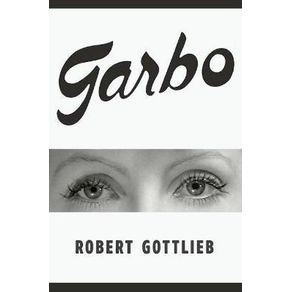"Wherever you look in the period between 1925 and 1941," Robert Gottlieb writes in Garbo, "Greta Garbo is in people's minds, hearts, and dreams." Strikingly glamorous and famously inscrutable, she managed, in sixteen short years, to infiltrate the world's subconscious; the end of her film career, when she was thirty-six, only made her more irresistible. Garbo appeared in just twenty-four Hollywood movies, yet her impact on the world--and that indescribable, transcendent presence she possessed--was rivaled only by Marilyn Monroe's. She was looked on as a unique phenomenon, a sphinx, a myth, the most beautiful woman in the world, but in reality she was a Swedish peasant girl, uneducated, naïve, and always on her guard. When she arrived in Hollywood, aged nineteen, she spoke barely a word of English and was completely unprepared for the ferocious publicity that quickly adhered to her as, almost overnight, she became the world's most famous actress.
In Garbo, the acclaimed critic and editor Robert Gottlieb offers a vivid and thorough retelling of her life, beginning in the slums of Stockholm and proceeding through her years of struggling to elude the attention of the world--her desperate, futile striving to be "left alone." He takes us through the films themselves, from M-G-M's early presentation of her as a "vamp"--her overwhelming beauty drawing men to their doom, a formula she loathed--to the artistic heights of Camille and Ninotchka ("Garbo Laughs!"), by way of Anna Christie ("Garbo Talks!"), Mata Hari, and Grand Hotel. He examines her passive withdrawal from the movies, and the endless attempts to draw her back. And he sketches the life she led as a very wealthy woman in New York--"a hermit about town"--and the life she led in Europe among the Rothschilds and men like Onassis and Churchill. Her relationships with her famous co-star John Gilbert, with Cecil Beaton, with Leopold Stokowski, with Erich Maria Remarque, with George Schlee--were they consummated? Was she

